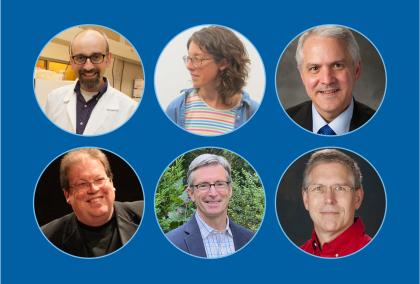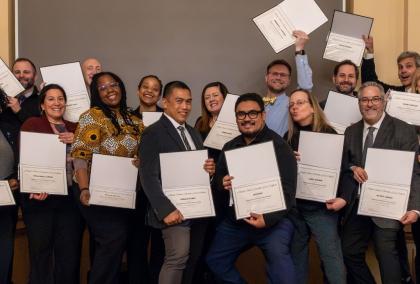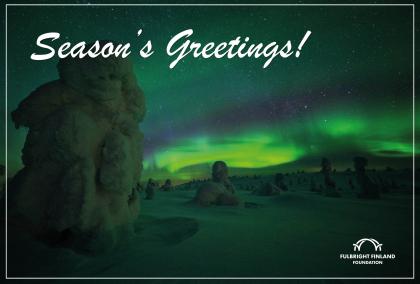How Do You Return Home When Home No Longer Exists
By Bruce Blair
Published on June 10, 2020
While everyone returns to a different world than the one they left to begin their Fulbright journey, this time is different.
We discussed during orientation the cycles of culture shock that ultimately culminates in a reverse shock upon returning home. I took in the information but felt that I was well prepared due to my previous exchange experiences. The problem with that assumption is I thought that I would return home and not to some unrecognizable place. While everyone returns to a different world than the one they left to begin their Fulbright journey, this time is different.
The word home carries with it deep meanings and emotions rooted in familiarity and comfort. It is a place where you can be your own; where your friends and family live, whether that is your family by birth or choice; where you know what to do and when to do it. In essence, home is where you wish you were anytime you are not there. The word return carries a similar emotional attachment as home though probably not as deep. Return at the very least means to visit a place, thought, or emotion that you previously visited. It carries with it notions of familiarity and comfort. But, how do you return home in times where nothing is familiar and when home no longer exists?
I can remember the faces of the airport employees and passengers as I left Finland. Nothing seemed familiar. Whether it was from the growing pandemic or the uncertain economic conditions, everyone seemed scared, lost, and more distant than usual. There was no certainty as to my trip. Each of the three connections that I had was delayed and or canceled and rescheduled forcing me to stay two unscheduled nights in hotels. My wife was supposed to pick me up in Salt Lake City but due to an earthquake, the airport was closed for two days. This forced me to switch my arrival airport and my wife to drive 5 hours north. Despite all of this, as we were landing, the plane flew parallel to the Grand Tetons; I had finally returned home after a grueling three-day odyssey. That was the last time I felt that emotion.
From the moment the plane touched down until today, as I write this narrative, nothing is familiar and nothing seems comfortable. My town is typically full of pass-through tourists on their way to Yellowstone National Park, Grand Tetons National Park, and/or Glacier National Park. But it is now very quiet, and there is no traffic on the roads. This is a time when we would spend our weekends camping, hiking, and biking with friends, but now, as with everything else in our lives, we must do it in isolation. As we go to the store to pick up essentials, our first thought is not about whether they have any specials but whether or not they will have what we need and whether or not the people there will wear a mask. But all of these are secondary to the real threats of survival that many individuals have had to face. Many of my friends have lost their jobs or live with the real threat that they may be without a job sometime over the next year as our economy adjusts. This is not home and I have yet to return.
Despite these negative experiences, something positive actually occurred to me which makes these feelings more complicated. The realities of the academic job market weighed heavy on me throughout my Fulbright. The job search cancellation emails sadly started to pile up in early March, and I had settled on the conclusion that I would either be unemployed for at best a year or have to search for a job outside of academia. Unexpectedly, one of the institutions that canceled their search reopened it, and two weeks later I was hired as an instructor in a town three-and-a-half hours away. I have been waiting for this moment for 15 years and have had to fight to get where I am today, but during these times, it does not feel like something worth celebrating. Before COIVD-19, this major accomplishment would have marked an instant feeling of relief; some tears; and a celebration with family, friends, and professors. But that is not the world we live in anymore. I am now filled with conflicted feelings of joy for my opportunities but sadness about the pains felt by others. I am now filled with the want and the need to keep my news private so as not to come across as a braggart or attempting to belittle other’s strife. This is not home and I have yet to return.
I am unsure what the future may bring but I do know that instead of returning home, I must now focus on adapting to this new version of home.


